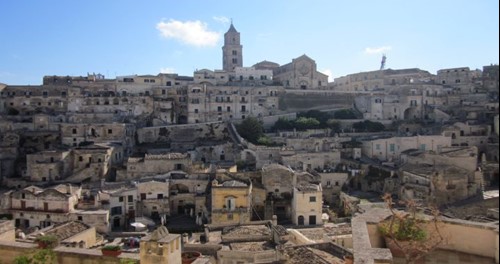
What it Means to be the European Capital of Culture
Matera in the Basilicata region of Italy was awarded the European Capital of Culture for 2019. But what does this accolade really mean?
History of the European Capital of Culture
The European Capital of Culture programme was originally conceived in 1983 by then Greek Minister Melina Mercouri and was originally termed “European City of Culture”. At the time, it was felt that the diverse and intriguing cultures of Europe were not given enough attention, and the programme hoped to change this. It was launched in 1985, when Athens was announced as the first European City of Culture.

In 1999, the European City of Culture was renamed the European Capital of Culture and, in that year, Weimar in Germany held the title.
During its time, the European Capital of Culture has seen many diverse cities in Europe hold the title, and in modern times it has become common for more than one city to be awarded the title in one year. For example, in 2018 both Leeuwarden (Netherlands) and Valletta (Malta) are sharing the title, and Matera in Italy is sharing the title with Plovdiv (Bulgaria) in 2019.
How a City is Selected
European Capitals of Culture have been selected up until 2022 by an international panel of cultural experts.
As a part of the selection process, cities submit bids to the panel around 6 years before the title-year. The panel then assesses the candidates based on special criteria. This results in a short-list and the cities on this list are asked to submit more detailed proposals, which are voted on. The recommended European Capital of Culture is announced 4 years before the title-year to allow time for the planning and organization of events.

In selecting Matera as the European Capital of Culture for 2019, the panel highlighted several key points that led to this unassuming city’s victory:
- Matera’s vision to promote culture through new technologies, including digital tools, such as an online TV channel and coding clubs, impressed the panel
- The panel was delighted by Matera’s artistic focus, including the planned Southern Renaissance Exhibition
- Mainstream cultural institutions and organizations in Matera impressed the panel with their willingness to adopt modern practices to promote culture
- Inclusion was a focus of Matera’s proposal
- Matera was sensitive to the impact of increased tourism on the region’s eco-system and has a plan for sustainable tourism
How it is Celebrated
Since the title tends to bring positive socio-economic development to selected cities, it is an accolade that many cities desire and strive to achieve. In addition, cities selected for the European Capital of Culture have the chance to be awarded the Melina Mercouri Prize, which comes with a €1.5m cash prize funded by the EU Creative Europe programme.
As for the celebrations, during the calendar year that a city holds the European Capital of Culture title, a series of cultural events is organized in the city. This allows the unique culture of the city to be highlighted and celebrated, and often results in increased tourism, especially to the less-travelled cities.

For example, in 2019, Matera is planning an exhibition focused on southern Renaissance art and also plans a vibrant festival of music. There will also be an open design school, coding clubs for young people and an online TV channel offering virtual tours of Matera’s many cultural attractions, including the famous Sassi.
In particular, the European Capital of Culture initiative is designed to:
- Highlight the richness and diversity of cultures in Europe
- Celebrate common cultural traditions
- Increase integration and a sense of “belonging”
Several studies have also shown that the title tends to result in regeneration, a raised profile and enhanced image of the selected city, and an increase in tourism.
Want to Visit Matera in 2021/22?
If you would like to visit Matera then get in touch with one of our Italy travel experts to find out more about our customized European tours and vacations. Call us at +44 1223 637328 or click here to send an online inquiry.
Search Keywords
Enter keywords below to perform a search within the events to find more relevant posts